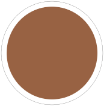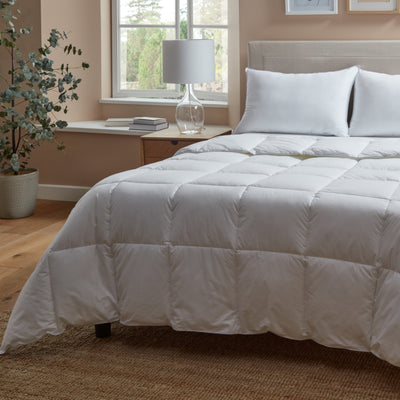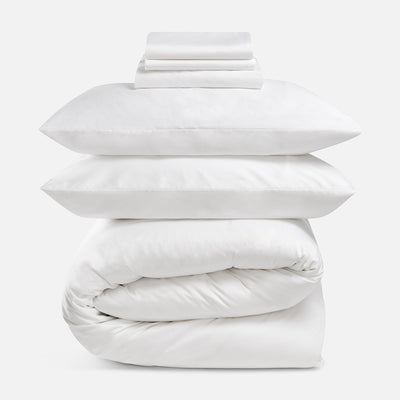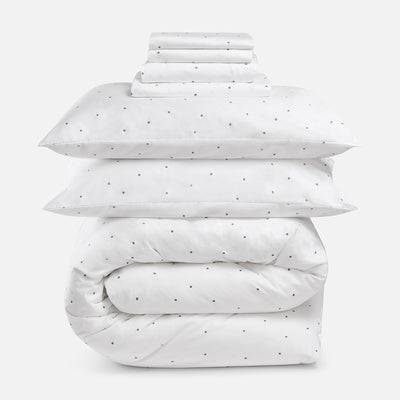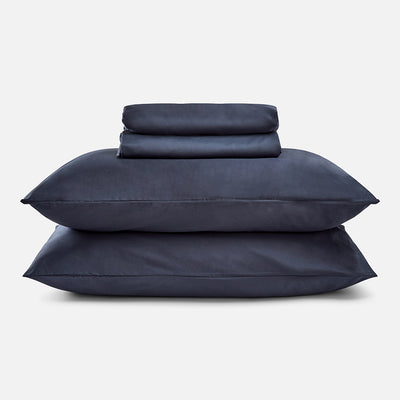
Long days, glorious sunshine and blue skies are finally upon us here in the UK. But unfortunately, allergy season is too. The dry air and warm weather is responsible for encouraging particularly high levels of pollen in the air, making it almost impossible for sufferers of Hayfever to get a good night’s rest.
Allergic Rhinitis (also known as Hay Fever) is one of the most common allergies that affects 1 in every 5 of us at some point in our lives. So what can we do to ensure that we don’t lose anymore sleep to these irritating symptoms of Hay Fever?
In this guide, we share our Top 10 Tips on how to reduce symptoms of Hayfever at night-time and guarantee a peaceful night of slumber.
Shower at bedtime
According to Dr Marshall (the director of the division of Clinical Immunology and Allergy for the University of Mississippi Medical Center), showering before bed can help tackle your Hay Fever symptoms in a variety of ways. When we spend time outdoors, pollen can gather on our skin and hair, which can often make Hayfever worse. This is why it’s so important to make sure to thoroughly clean your hair and body before you get in bed each night.
Another way that showering before bed can help to combat night-time stuffiness is through steam. When we shower, the moisture in the air helps to thin out our mucus, acting as a decongestant which can often ease the effects that Hay Fever has on our breathing.
Don’t wear clothing that’s been worn outside
This one seems pretty straight forward, but you’d be surprised by how easy it is for pollen to cling to your clothes and become an unwelcome guest in your home. So, whether it’s time for bed, an afternoon nap or you just fancy sitting on your bed, make sure you take off any clothing that has been worn outside before doing so.
Get yourself some anti allergy bedding
Anti-allergy duvets and pillows are made using a special kind of technology which prevents allergens such as pollen from getting into your bedding and disturbing your sleep. There are many different options out there, and we recommend pairing them with good quality high thread count bedding, which will prevent pollen from latching onto the duvet and pillows themselves.
Wash your bed sheets regularly
This is one of the most important tips on our list, as new research suggests that almost a third of us leave our bed sheets on for more than 3 weeks in between washes! We recommended that you wash your bed sheets at least once a week to minimise the risk of suffering from Hay Fever symptoms throughout the night. If you experience itchiness in the night, you may also benefit from using hypoallergenic (non-bio) laundry detergent, which can ease these symptoms.
Some foods have the potential to make Hayfever symptoms worse, particularly at night. We recommend avoiding the following food groups during the evenings to get a good night’s sleep despite your allergy:
- Dairy Products - One feature strongly associated with Hayfever is the overproduction of mucus as the lining of the nose and throat swell up. Dairy products can thicken secretions in the throat which can cause a feeling of your throat being coated, therefore triggering responses such as coughing and wheezing. So perhaps it could be wise to skip that mug of warm milk before bed after all.
- Refined sugars - Consuming large quantities of refined sugars, such as those found in chocolate and fizzy drinks before bed could be hindering your chances of getting a good night’s rest. This is because these types of foods can cause histamine release and therefore aggravate your Hay Fever even further.
- Fermented foods - Foods that have been aged or preserved such as yoghurt and pickles should also be avoided at bedtime, as they too contain high levels of histamine.
Skip the nightcap
Traditionally, it was thought that sipping on an alcoholic drink before hitting the hay was the perfect sleep aid; it warms you up and can help you to fall asleep faster. So what’s the issue? Well, not only is alcohol rich in histamine, but it can also compromise your immune system, leaving you more susceptible to experiencing symptoms associated with Hayfever. What’s more, alcohol dehydrates the body, making it more likely to worsen your existing symptoms and ruin your sleep.
Keep your bedroom a pet-free zone
This one’s by far the hardest for those of us who love snuggles in bed with our precious pooches! But not only does animal hair attract pollen that spreads wherever our pets go, but it’s also an allergen in itself - so encouraging your pets to sleep in their own beds may be your best bet for combating Hay Fever and getting some well needed shut-eye this summer.
Dry your bedding indoors
On a hot summer's day, hanging your laundry to dry outside seems like a great idea. But for those with pollen allergies, it can sometimes cause more harm than good. This is because pollen can land on and stick to your washing while it’s drying, meaning that you could actually end up making your bed with pollen covered sheets without realising!
Vacuum your room
Cleaning and vacuuming your home is a sure fire way of reducing the likelihood of experiencing Hay Fever symptoms as it helps to remove a variety of allergens such as pollen and dust. Vacuuming and wiping down surfaces with a damp cloth is particularly important in your bedroom, as this will help clear the air and should allow you to breathe easier while you sleep.
Drink plenty of fluids
Congestion and sinus pressure can be some of the worst symptoms of Hayfever, especially when trying to get to sleep. There are a number of ways you can go about clearing out your sinuses, but one of the most effective ways is to stay hydrated. We recommend that you drink at least 8 glasses of water a day, which will help you clear your nasal passages and reduce the production of histamine in your body.
We hope these Top 10 Tips on How to Sleep with Hayfever have been helpful and have given you some new ideas to try out to help you get some of those all-important zzz’s.
